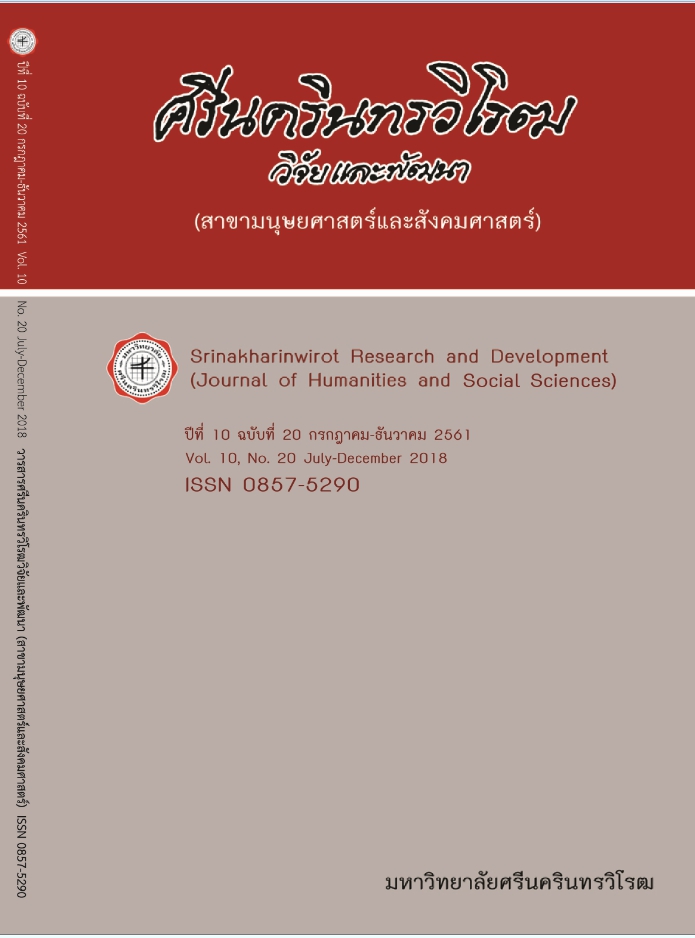ความคิดเห็นและการปฏิบัติของคณาจารย์ในการใช้ระบบประกันคุณภาพการศึกษาเครือข่ายมหาวิทยาลัยอาเซียน (AUN-QA) ระดับหลักสูตรในประเทศไทย ACADEMIC STAFF OPINIONS AND PRACTICE ON THE USE OF ASEAN UNIVERSITY NETWORK QUALITY ASSURANCE (AUN-QA) AT A PROGRAM LEVEL IN THAILAND
Keywords:
Quality Assurance, ASEAN University Network, CUPT, Outcome-Based EducationAbstract
The objective of this study is to explore the viewpoints and practice of academic staff on the use of ASEAN University Network Quality Assurance (AUN-QA) at a program level. Data were collected from 1,200 academic staff of 11 Thai universities which have implemented AUN-QA using a questionnaire. A total of 625 staff responded to the survey, yielding a response rate of 51.3%. The results suggested that the goal of AUN-QA implementation was the improvement in education quality rather than the AUN certification. The use of AUN-QA resulted in the increased application of Outcome-Based Education (OBE) and Quality cycle (PDCA) in education by the staff. Most administrators of all levels participated in QA activities, but the administrators’ and staff’s understanding and necessary supports were moderate. Most responders considered AUN-QA appropriate to Thai education context and aligned with Thai Qualifications Framework, and would lead to future quality improvement towards international standard. The continuous increase in the understanding of concept and practice of OBE, AUN-QA, and roles and responsibilities of all parties inside the university was necessary to the success of AUN-QA implementation
Downloads
References
[2] สำนักงานคณะกรรมการการอุดมศึกษา. (2558). คู่มือการประกันคุณภาพการศึกษาภายในระดับอุดมศึกษา. พิมพ์ครั้งที่ 1. กรุงเทพฯ: ภาพพิมพ์.
[3] ที่ประชุมอธิการบดีแห่งประเทศไทย. (2558). คู่มือการประกันคุณภาพการศึกษา CUPT QA ฉบับปีการศึกษา 2557. พิมพ์ครั้งที่ 1. กรุงเทพฯ: ที่ประชุมอธิการบดีแห่งประเทศไทย.
[4] ASEAN University Network (AUN). (2015). Guide to AUN-QA Assessment at Programme Level Version 3.0. Retrieved April 20, 2018, from https://www.aunsec.org/pdf/Guide%20to%20AUN QA%20Assessment%20at%20Programme%20Level%20Version%203_2015.pdf
[5] กัญญดา อนุวงศ์; และ อาจรี ศุภสุธีกุล. (2560). แนวคิดและเกณฑ์ประกันคุณภาพการศึกษา เครือข่ายมหาวิทยาลัยอาเซียนในระดับหลักสูตร. วารสารวิชาการอุตสาหกรรมศึกษา. 12(1): 9-20.
[6] Alderson, Anna; and Martin, Marie. (2007). Outcomes based education: Where has it come from and where is it going?. Educational Research. 17(2): 161-182.
[7] AUN-QA secretariat. (2018). AUN-QA Factbook 2018 Summary. Retrieved April 20, 2018, from https://www.aun-qa.org/publication/AUN-QAFactbook2018.pdf
[8] Anuwong Kunyada. (2017). Workshop Handout: Outcome-Based Education and AUN-QA for Curriculum Development. In The CUPT QA Training for Quality Development. Sukosol Hotel, Bangkok.
Downloads
Published
How to Cite
Issue
Section
License
Srinakharinwirot Research and Development Journal of Humanities and Social Sciences is licensed Under a Creative Commons Attribution-NonCommercial-NoDerivs 4.0 International (CC-BY-NC-ND 4.0) License, Unless Otherwise Stated. Please Read Journal Policies Page for More Information on Open Access, Copyright and Permissions.


